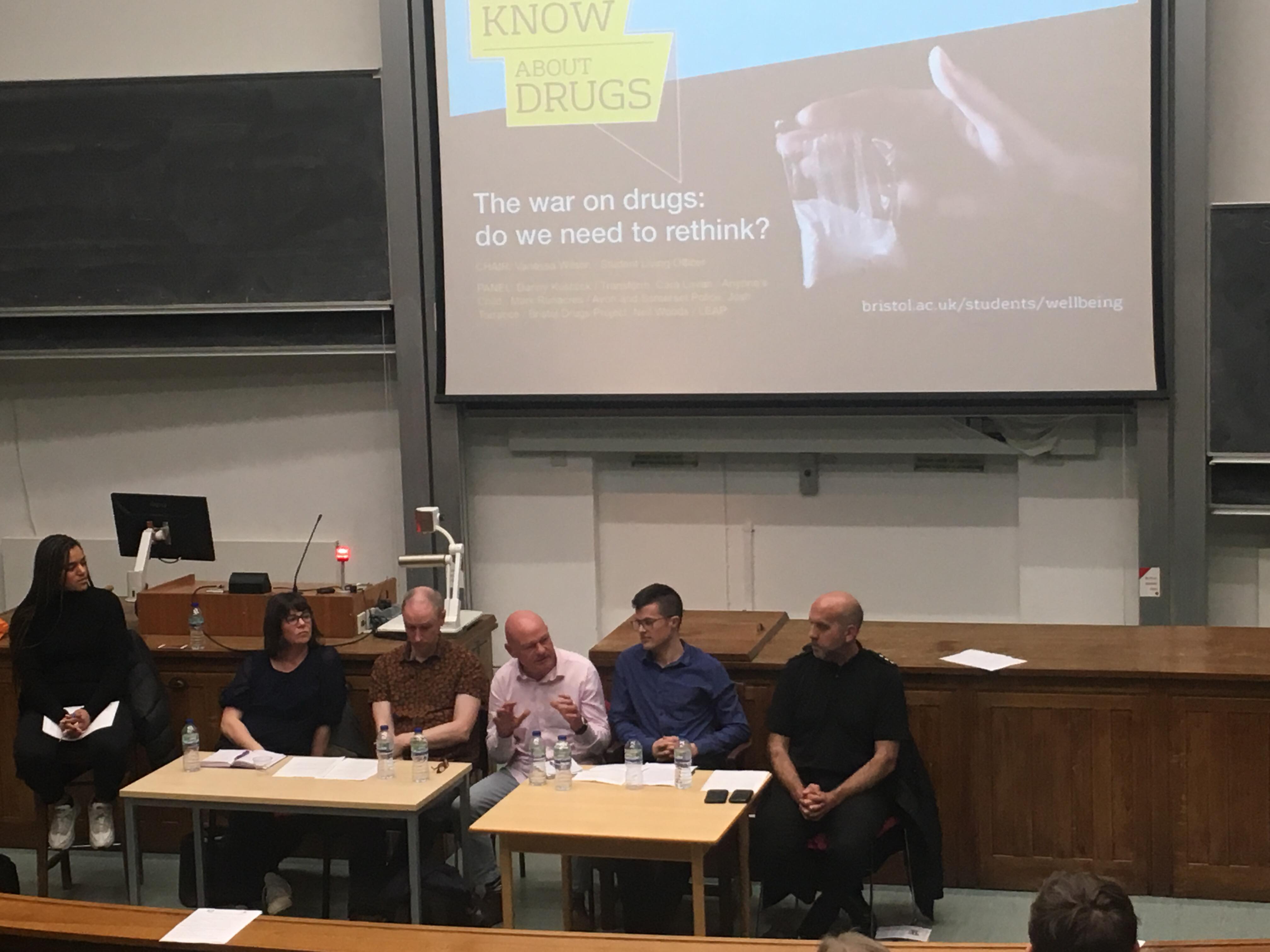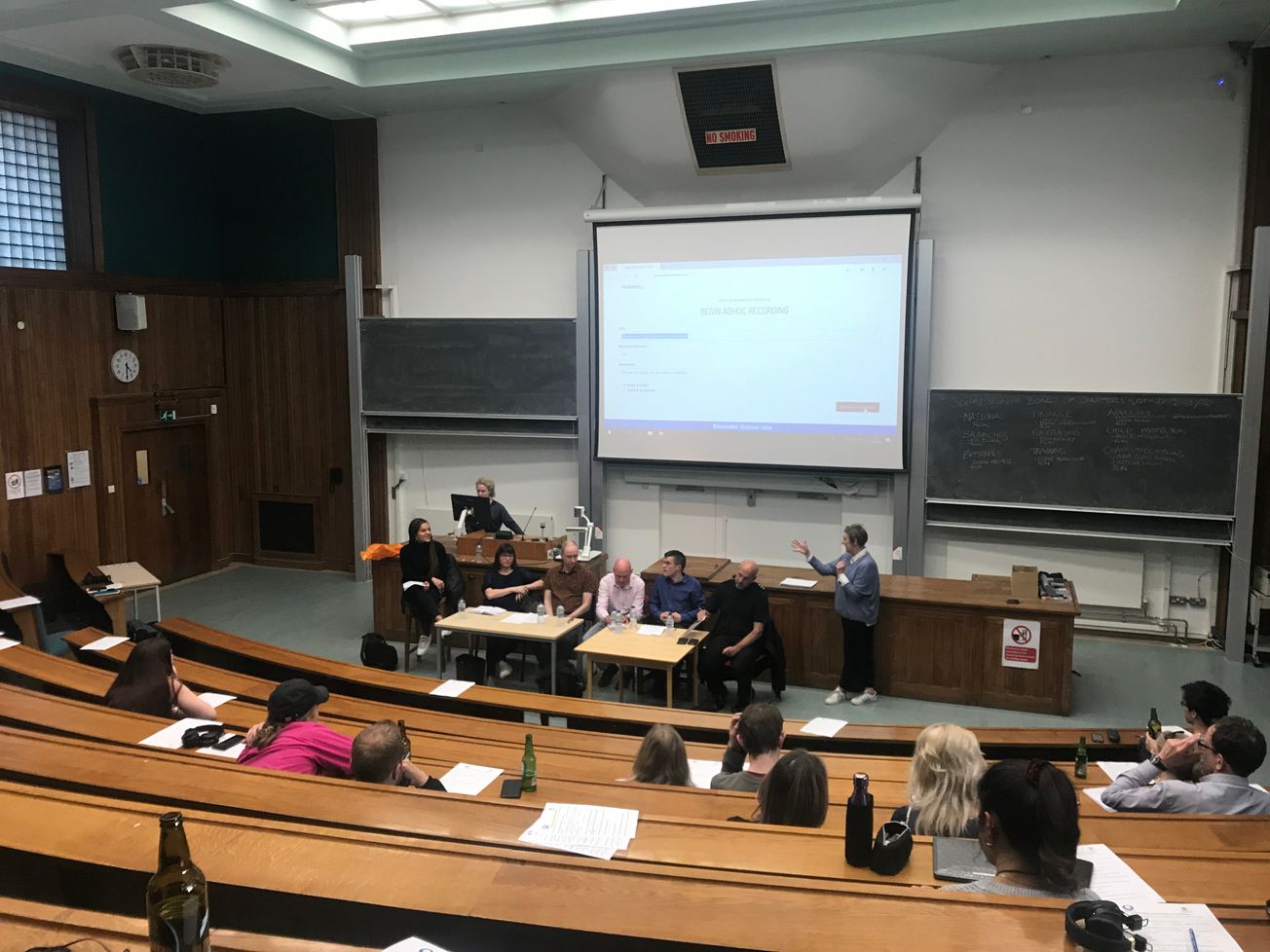By Zoë Crowther, Students' Union Correspondent
'The War on Drugs: Do we need to rethink?' was a panel discussion aiming to open up conversations on campus surrounding drug use and reforms to existing drug policies.
The event was set up by the University of Bristol and Bristol SU, and took place on Monday 1 April. Student Living Officer Vanessa Wilson acted as chair.
The panellists included individuals who have been on the frontline of drugs crime prevention to those with expertise or personal experience of the harm caused by substance use.
Speaking to Epigram, Vanessa Wilson said: 'It’s important that students are informed about what they are taking and feel supported by the University if they feel like drugs are becoming a problem.
'We need to start having open and honest conversations about drug use on campus so students feel comfortable about coming forward with their problems. There is a huge stigma around drug use and it shouldn't exist.
'It's great that the University is finally opening up these conversations around harm reduction, but we need to continue to put pressure on the University so we can break down this taboo.'

Panel members: Vanessa Wilson (Chair), Cara Lavan, Neil Woods, Danny Kushlick, Josh Torrance, Mark Runacres
Image: Epigram / Nina Bryant
Sally Patterson, Equality, Liberation and Access Officer at Bristol SU was also involved in organising the event. She told Epigram: 'I’m really excited to have launched our Substance Misuse campaign. Vanessa and I have been working hard with the Uni to take a harm reduction approach to drugs and alcohol. This is the direction we need to be going in, and it’s great to have the University onboard.'
Many of the questions posed by audience members were directly related to drug use among the student population. The panellists were in universal agreement that more needs to be done in order to provoke honest and supportive conversations on campus.
Panellist and Bristol alumni Josh Torrance studied drug policy for his MSc and now works for Bristol Drugs Project, a charity providing expert knowledge for those with alcohol and drug problems. He said: 'Students do not know enough. Just fifteen minutes of education can impact their future patterns of behaviour. I told a group of young people that ketamine was addictive and they didn't even know that.'
The panellists also discussed how students underestimate the danger of alcohol, and some panel members emphasised that alcohol should not be viewed as distinct from other drugs just because it is legal.
Was just on a panel with @DannyTransform @wudzee0 and others talking to Bristol students about drugs and drugs policy. Great to engage students in honest conversation, especially because my attempts to reform Bristol uni policy years ago met a brick wall.
— Josh Torrance (@Joshitea) April 1, 2019
Panellist Cara Lavan is a film-maker and drugs awareness campaigner, following the death of her partner from an accidental overdose in 2014.
She offered advice to audience members who asked how they might help fellow students struggling with drugs problems: 'The best way would be guiding them. Getting them to wake up and realise what they're doing, from a friendly and non-judgmental perspective.
'One of the best things to do is demystify drugs - ask someone "what is it you get out of it?" People don't really like to answer these questions because it leads to self-reflection.'
Other topics discussed included changing the language surrounding drug use. Danny Kushlick, founder of Tranform Drug Policy Foundation, argued that we need to move away from associating drug use with criminality: 'Decriminalisation refers to decriminalising the people who use drugs. And I wouldn't use the term "drug abuse" at all - it doesn't bring anything to the table, it's stigmatising.'
Bristol MP @ThangamMP is calling on @UKLabour to adopt a position on drug policy reformhttps://t.co/0LLhmaN17E
— TransformDrugPolicy (@TransformDrugs) October 12, 2018
Says solutions "could include legalisation and regulation of some drugs".
Calls on party members to talk to PCCs and MPs.
Will you?https://t.co/XL5G4s21hE pic.twitter.com/vp8923zmq5
Mark Runacres, a Bristol police officer, explained how Avon & Somerset Police has been among the first forces in the UK to not give someone a criminal offence when they are caught in possession of drugs for the first time. Alongside the other panellists, he described how Bristol in particular has been at the forefront of recent attempts to push for the regulation of drugs.
Towards the end of the discussion, Cara Lavan said that information on drugs 'should be provided alongside other health advice. Things like posters on the inside of club toilets can be really useful.'
It was also suggested that with the success of public health campaigns to cut down tobacco smoking, discussions should be had as to whether a similar scheme could be adopted for other forms of drugs.
If you are experiencing problems relating to drugs or alcohol, or are worried about a friend, you can find various support resources on the University website.
Other support includes: Bristol Drugs Project https://www.bdp.org.uk
Featured Image: Epigram / Zoë Crowther







